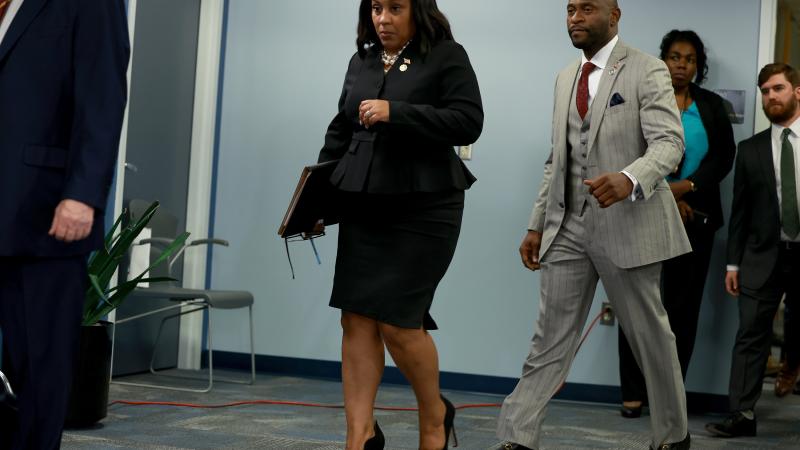Ford 'right-sizing' Michigan EV plant, slashing 800 jobs
The $210 million awarded to Ford from the Critical Industry Program could be canceled if the proposal contained any material misrepresentation.
Ford Motor Co. will slash 800 jobs from its planned electric vehicle plant in Marshall subsidized by more than $1.7 billion of taxpayer money.
Ford said it is "re-timing and resizing" the BlueOval Battery Park Michigan in Marshall.
The news brought bipartisan criticism from Michigan lawmakers. Ford originally announced the plant as worth $3.5B and estimated it would employ 2,500 workers.
“We are pleased to confirm we are moving ahead with the Marshall project, consistent with the Ford+ plan for growth and value creation. However, we are right-sizing as we balance investment, growth and profitability. The facility will now create more than 1,700 good-paying American jobs to produce a planned capacity of approximately 20 GWh."
Ford says it plans to produce lithium iron phosphate batteries at the plant starting in 2026.
Otie McKinley, media and communications manager at the Michigan Economic Development Corp., told The Center Square in an email: "State support for this project will be reduced and adjusted based on the final scope of the project."
House Republican Leader Matt Hall, R-Richland Township, called on the state to shrink the $1.8B subsidy after Ford cut job projections from 2,500 to 1,700.
“The bad deal the governor and Democrats negotiated for Michigan taxpayers just got a whole lot worse,” Hall said in a statement. “Even with Democrats’ premature push for electric vehicles and $1.8 billion in state incentives, Ford is cutting back the project and slashing job creation because most people just won’t buy unaffordable, inconvenient EVs."
Hall called the deal a "disaster from the start" after the 32% job cut and said called for the subsidy to be revoked.
Rep. Dylan Wegela, D-Garden City, said he was "disappointed, but not surprised" by the news.
“It should be no surprise to anyone,” Wegela said in a phone interview. “We continue to give these corporations tax breaks and subsidies and then they cut jobs.”
Wegela said that trickle down economics doesn’t work.
“[Michiganders] don’t want their tax dollars going to multi-billion dollar corporations, and that shouldn’t be a controversial thing,” Wegela said.
The $210 million awarded to Ford from the Critical Industry Program could be canceled if the proposal contained any material misrepresentation, and claw-back provisions could reduce the CIP funds in any case due to the job reduction.
Ford announced the prospective job cuts Tuesday after a months-long pause on the project. The company said it was “right-sizing” the plant given lower-than-expected market demand for electric vehicles.
As originally announced, the factory would have cost more than $700,000 per job created. Now, that number would be more than $1 million per job.
The project already provided a poor return on investment, doling out more than $700,000 per job. If incentives aren’t scaled back, the reduced job plans would now leave taxpayers with an even lower return on investment — giving more than $1 million in incentives for each job created.















